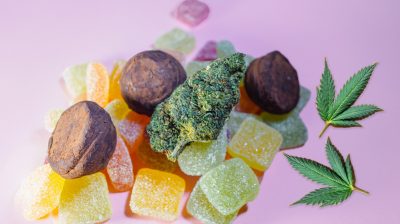Signs that your relationship with drug use is problematic
People take drugs for many reasons, such as to relax or to socialise. However, sometimes drug use can become problematic.

People use drugs for a lot of reasons, such as to relax, be more sociable, to disconnect from reality or to experiment. If you choose to use drugs, it is important to be conscious of how and why you use them. Your relationship with substances can evolve over time.
It can be helpful to reflect on your drug use in a structured way if you are beginning to become concerned about this relationship. These are some questions that you can ask yourself if you are worried that your relationship with drugs has become problematic.
Signs that your relationship with drug use is problematic
Using drugs as a coping mechanism
It is not uncommon for people to occasionally turn to substances as a coping mechanism. Using substances in this way isn’t morally wrong and doesn’t mean that there is something ‘wrong’ with you.
Drugs can be an attractive coping mechanism due to how substances can change your thoughts and feelings. They can become a tool that people use to temporarily escape different circumstances in life, regulate emotions or numb difficult thoughts or feelings.
All coping mechanisms have different positives and negatives. They can make your life easier in some ways and more difficult in other ways. If you are beginning to question how your drug use is affecting your life, you may want to reassess your relationship with them.
Why do I use drugs?
People have many of their own reasons for using drugs. With substances that are relaxing, such as alcohol or weed, you may like to use them to unwind. You may use stimulant drugs or ‘party drugs’ like MDMA/ecstasy, ketamine or cocaine during social situations, such as at a party, a festival or a night out. Perhaps you tried certain drugs because those in your social circle were using them. You may have started to use drugs for one reason or another, but then found you were unable to stop, or that the negative effects were outweighing the positives.
If you can feel your relationship with substance shifting from wanting them to needing them, or if they are interfering with the life you want for yourself, it may be worth reflecting on your drug use.
A thought experiment you can do is ask yourself how you would feel if you had to suddenly stop using these substances for an extended period of time. Do you think you would worry that you wouldn’t be able to sleep without substances? Would you feel like you would be too socially anxious or nervous to socialise if you couldn’t use drugs? Would you worry about how your friends would react or what it would mean for yourself?
It can also be helpful to think about whether your substance use habits have changed recently and if these changes are connected to life events in any way. For example, if you recently experienced a breakup and have been using substances more frequently or more heavily since then, you may be relying on these substances to help you deal with your feelings about the ending of the relationship.
Does the cost of your drug use outweigh the benefits?
Another indicator that it might be time to reassess your relationship with substances is determining whether it feels like drugs are overall a positive or negative force in your life. You may enjoy how drugs influence your thoughts and feelings while you are high, but might find the after effects difficult.
Stimulant drugs like MDMA may make you feel depressed or anxious afterwards (sometimes called a comedown). When smoking cannabis frequently, you may find it difficult to concentrate or think, even when not under the influence. If you have experienced this, you may want to ask yourself whether it feels like the high is worth it. If not, it might be advisable to reduce, or take a break from using.
You can also think of this question financially. Your drug use could be costing you a lot of money and making other expenses in life tough to afford. If this is the case, especially if you find yourself often going over whatever ‘budget’ you set yourself for drugs, it may be worth re-evaluating.
If you can’t visualise yourself reducing or stopping your substance use even though you feel like the costs outweigh the benefits, this could be a sign that your relationship with drugs is causing problems for you.
Are drugs getting in the way of you living the life you want?
You may want to ask yourself whether drug use is helping you or holding you back from living the kind of life you want.
One way to explore this is to consider how you spend your week. Write down how you spend your typical week hour by hour. Write down elements of your identity in another part of the page. You may see yourself as a friend, a family member, a cyclist, a student, a pet owner, a dancer, someone who loves to travel, and many more identities.
When how you spend your time does not align with your identity, it might be helpful to consider some changes to help you live the life you want to live.
For example, you may consider yourself to be an active person, but do not spend as much time exercising as you would like. Even if you want to become more physically fit by going to the gym more often, sometimes hangovers and nights out can get in the way of this goal. It could also be that substance use is making it harder to save money. Whether that be to spend on a travel, car, or a rainy day fund.
Your goals and desires will evolve over time. If substance use is getting in the way of these, you may consider changing your habits so that the life you want to live is possible for you.
Have drugs interfered with other parts of your life?
If drug use has created difficulty in your life with your loved ones or your career, the habit may be creating more stress than it relieves. You may find you are less present at work or education or not having as many meaningful experiences with your friends.
Think about your substance use patterns and whether substances are at the root of the difficulties you are experiencing. If you feel like they are the cause, you may need to ask yourself whether substances feel worth it.
How to respond if your drug use has become problematic
You may be wondering what to do next if you’ve discovered that your relationship with drugs has become difficult. There is no one size fits all approach. The best way forward is to figure out what feels right for you.
A first step you could take is by deciding on some boundaries around your substance use. This could come in the form of only allowing yourself to only take substances on weekends. Or only taking them a certain amount of times per month, or spending a set amount on drugs each week.
You may not feel like it is realistic to entirely quit using drugs at the moment. You cannot get rid of a coping mechanism without having one to replace it. Changing your coping mechanisms can be a complicated process, and it might take time. Having support for this process can make all the difference.
You do not necessarily have to label yourself an ‘addict’ if you find drugs are causing more problems than they solve, though some people find this label helpful. Experiencing a period of problematic substance use does not necessarily mean you will never be able to have a stable relationship with that substance.
Be kind to yourself if you are planning changes in your substance use, and speak kindly to yourself as you navigate the shifts.
Getting support
If you want to change your relationship to substances, you do not have to do it alone. It could be helpful to talk to someone you trust, such as a friend or your partner, about your concerns.
There are also many resources available to people looking to cut back or eliminate drug use altogether. Whatever stage you’re at, there are tools and people to support you to get where you want to be. Your GP may be able to help signpost you to services and resources and allied healthcare supports (consult your GP).
Find out more about what to do if you are dependent on drugs.
Support services
- Drugs.ie: Online information and support for drug and alcohol use. Includes a national directory of drug and alcohol services
- HSE Drugs, Alcohol, HIV and Sexual Health Helpline: Freephone 1800 459 459
- You can contact Youth Information Chat, an online service that can put you in touch with Youth Information Officers based all around the country, for more general information
- You can also contact the HSE’s Drug and Alcohol Helpline on freephone at 1800 459 459 if you want to discuss your cocaine use
- Find your local Alcoholics Anonymous, Narcotics Anonymous or Life Ring to support you through an abstinence approach.
Feeling overwhelmed and want to talk to someone?
- Get anonymous support 24/7 with our text message support service
- Connect with a trained volunteer who will listen to you, and help you to move forward feeling better
- Whatsapp us now or free-text SPUNOUT to 50808 to begin.
- Find out more about our text message support service
If you are a customer of the 48 or An Post network or cannot get through using the ‘50808’ short code please text HELLO to 086 1800 280 (standard message rates may apply). Some smaller networks do not support short codes like ‘50808’.






